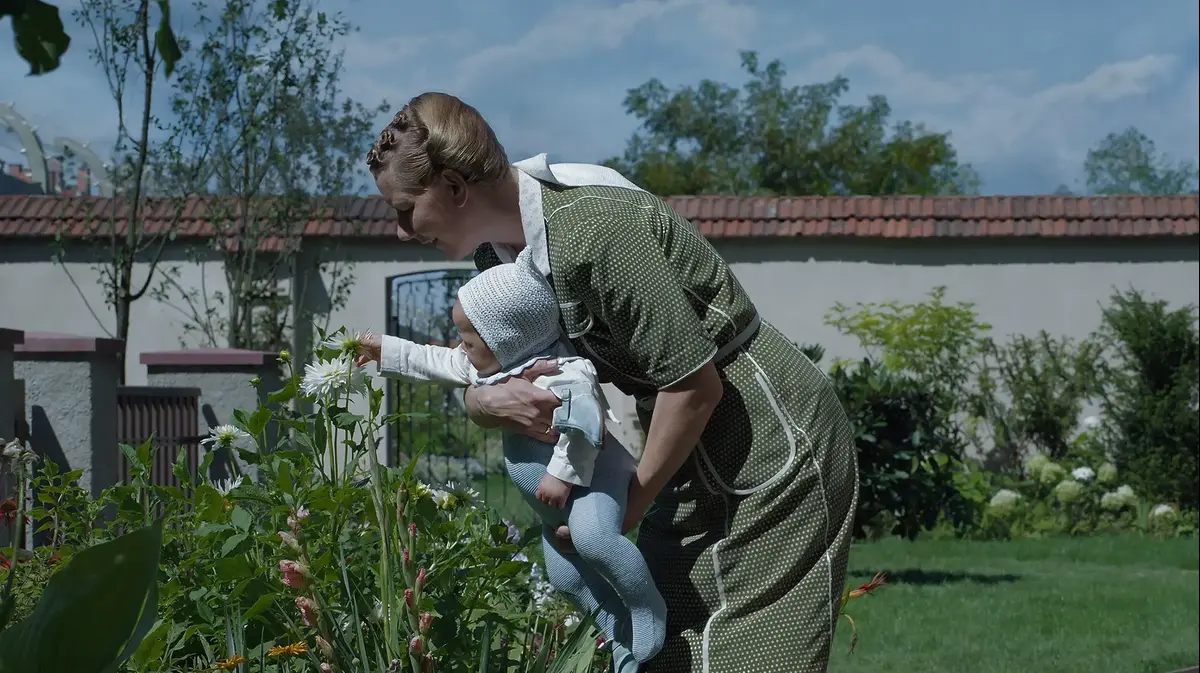Kempten / Allgäu - Experts recently spoke in the city theater about the terrible deeds of the Nazis in the Allgäu and the neo-Nazi scene today.
The starting point and basis of the panel discussion on October 31 was the latest film by Leo Hiemer, which he produced on behalf of cultural scientist Regina Gropper for the anniversary “1700 years of Jewish life in Germany”.
The work is part of the “VerVolkt” project, which aims to show the atrocities of the Nazis in the past and the activities of the neo-Nazis here in the Allgäu today.
Searcher for traces Hiemer persistently researched, visited a few “crime scenes” and selected individual fates of Jewish citizens as examples.
The quiet historical black-and-white photos - such as the destroyed synagogue, the devastated shop in Memmingen that belonged to the merchant Julius Guggenheimer, and individual children known by name on which the Nazis had misappropriated - stand in contrast to the lively and moving reports the "second witness".
They tell, touchedly, of what they learned from contemporary witnesses about the ubiquitous persecution at the time.
Touching stories from the region
Again and again, Hiemer kneels down in front of one of the 120 "stumbling blocks" laid in Memmingen in memory of the victims of the Nazi regime and polishes it bright.
Also the one dedicated to Franziska Endres.
The girl was assessed as “not worth living”, as can be seen from the meticulously kept files of the “sanatorium and nursing home” in Kaufbeuren / Irsee, where she died.
The film also emphatically addresses how the love between Heidi Schieß from Wolfertschwenden and Richard, a forced laborer from Poland, ultimately led to her being killed in the Ravensbrück concentration camp.
In a touching gesture, Hiemer dedicates a rose to her.
Forced laborers in Kempten
The historian Markus Naumann reports on the history of the Kempten animal breeding hall (today the Allgäuhalle). In the Second World War, from 1940 onwards, Polish forced laborers who were employed in agriculture and the armaments industry had to live where cattle were once auctioned. Anyone who was ill and no longer fit for work was sent to the Dachau concentration camp and died there. Naumann also presents some drawings of everyday warehouse life from Paul Wernet's notebooks. The city of Kempten acquired the find of great historical importance in 2017.
When asked Markus Asbach, the head of the presidential office in the police headquarters in Swabia South / West, about new Nazis in the Allgäu, one learns that most of the offenses take place online and that they only make up 1.2 percent of all crimes.
Although there is a right-wing extremist scene in the Unterallgäu, there is no evidence of an "open Nazi scene".
However, the film documented meetings of the neo-Nazis with “Sieg-Heil” calls around CD producer Benjamin Einsiedler in Bad Grönenbach and shouted songs with racist texts.
Also for the "Identitarian Movement", for "Reich Citizens" and "Unconventional Thinkers" applies: "May contain traces of Nazis."
Has it been worked up enough or not?
Leading on to the panel discussion, Hiemer described his cinematic search for traces as a very satisfying piece of work. Moderator Regina Gropper first turned to the head of the cultural office, Martin Fink, with the question of how the cultural office stood on the proposal to convert the former animal breeding hall into a cultural quarter. Fink: Of course, the historical legacy of the building has to be taken into account, it has to be carefully developed. The aim of the recently founded remembrance committee is to come back to a calm, rational way of working, to develop a scientific basis about the Nazi era and then to evaluate things in an ethical discussion.
Dr.
Ricardo Felberbaum, on the other hand, founder and chairman of the Sebald Society, found the scientific basis, more than 75 years after the end of the war, to be sufficiently solid.
The literary society has set the memory work in motion and wants to make WG Sebald and his work more present in the Allgäu.
He recommends reading his story “Paul Bereyter” as part of Jewish history in the Allgäu, which is also the basis for the play “The Emigrants”.
Blind in the right eye
For Felberbaum it is unbearable that Einsiedler's “Old School Records” are treated like trivialities, even though they contribute to the fact that Jews are still endangered today and today. As a highly sensitive person, it hurt Sebald deeply that nobody in his home town of Wertach wanted to deal with the involvement in the Nazi regime. Probably one of the reasons why he emigrated to England: "He had to flee, had to get out."
“Is your curriculum vitae a perfect integration story?” Asked Gropper Radoslav Ganev, the integration officer of the Sinti-Roma association “RomAnity”.
He told of everyday experiences of discrimination and his search for identity as a German from Bulgaria with Roma origins.
Ganev believes that the “Z word” should no longer play a role and wants to contrast the sometimes romanticizing, sometimes dehumanizing images of Roma and Sinti with other, more realistic ones.
There is a lack of attention
In the schools, information should be provided about Sinti and Roma and their extensive extermination by the Nazi killing machinery. Because when it is said, "Defend against the beginnings", it is already too late. The death of a young man from the Roma minority, who died last June during a brutal police operation in Teplice, Czech Republic, because a policeman kneeled on his neck for several minutes, triggered relatively few protests.
The journalist Sebastian Lipp was invited as a representative of "Allgäu right wing".
With his research he wants to find out why there are so many neo-Nazis in the Allgäu and asks whether yesterday was ever gone.
If concerts by the neo-Nazi group “Voice of Anger” can take place undisturbed, it is “convenient to be a neo-Nazi in the Allgäu”.
The scene, which has been internationally networked since 2000, is no longer structurally attacked by the state.
It is easy to see “if you want to!”.
There is a lack of awareness of the danger
There are also neo-Nazis in so-called good civil professions and state institutions, as the scandals in the security authorities show. There is also a lack of awareness among the population of the dangers posed by the radical right-wing AfD, which is hardly perceived as a threat. The AfD member of the state parliament, Christoph Maier, accused the theater and youth work in Memmingen of “left-wing extremist activities” and demanded that the director be dismissed. In keeping with the Nazi tradition, he apparently wanted to "clean up" the theater's schedule. Lipp urged to take action against such phenomena and to do everything to ensure that “the light on the Hitler window” goes out.
The subsequent discussion with the audience was short in view of the advanced hour.
In return, the invitation was issued to look at original photos of Lotte Eckhart and her little daughter Gabi in the foyer of the theater, led by Leo Hiemer.
Hiemer captured their fate in his film "Leni must go" and in the play "The Jewess and the Cardinal".
Leo Hiemer's film "May contain traces of Nazis" can be viewed free of charge on the YouTube video channel.
It will also be shown on Tuesday, November 23rd, in the Kaminwerk Memmingen, as in Kempten, followed by a panel discussion.
Elisabeth Brock
comment
The culture of remembrance and right-wing radicalism in the Allgäu are evidently issues that move urban society: The small hall of the theater was well occupied. Anyone who decided to spend almost three sunny Sunday hours in the theater has certainly not regretted the time invested - the podium was occupied by both committed and eloquent experts. Regina Gropper moderated it inconspicuously and competently, so that everyone stuck to the topic and had the same amount of space to present their special knowledge and concerns. In his excellent film, Leo Hiemer combines factual information with emotional contributions. It should be seen by as many young and old Allgäu residents as possible. Incidentally, I am convinced that the culture office's remembrance committee will sometimes be emotional!Which can also be enriching, since feelings are part of every political commitment and enliven the discussions. Elisabeth Brock









